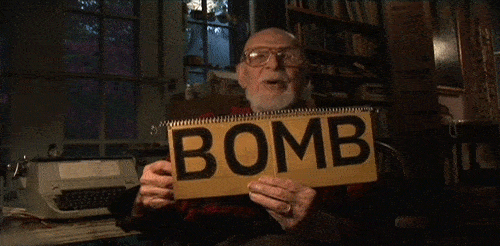Is that possible to learn the language completely? Just any language, native or foreign in, say, 10, 25, 70 years? No. And to master English, it is of major importance to always refresh language structures, update your idiomatic base, modernize grammar, immerse into English speaking environment and add new lexical units to your word stock. Here we’re going to speak about the latter and, believe, it doesn’t come as a problem when you know some useful tips.
First, to enrich your vocabulary, you have to come to grips with English texts. Be those articles, books, emails, chatting or games, everything will work for you. But wait, simply reading the text is not enough. First, look through the text to find the unknown words and train your apprehension to find out if you can guess them from the context or it’s better to use a dictionary (besides, start using only the English-English one).
The next step will be the actual memorizing. Here you can choose among several techniques and even the word games, which you may have heard of. So what we have now is a certain number of words from a certain article (book, movie, etc.). Now, let’s start.
![]() After you have found the interpretation and/or the translation of the words and phrases, prepare a corresponding number of paper cards clean on both sides. Put down the words on one of side and the translation on another; it’ll help you to better memorize the spelling. Then, read the word several times.
After you have found the interpretation and/or the translation of the words and phrases, prepare a corresponding number of paper cards clean on both sides. Put down the words on one of side and the translation on another; it’ll help you to better memorize the spelling. Then, read the word several times.
![]() Randomly, pick the flashcards one by one trying to guess the meaning of the words. Those, which cause problems, need more attention from your side, so you’ll have to uphold another ritual.
Randomly, pick the flashcards one by one trying to guess the meaning of the words. Those, which cause problems, need more attention from your side, so you’ll have to uphold another ritual.

![]() Play with imagination: relate English words to something familiar and pleasant, imagine it and speak about this certain thing using the corresponding word.
Play with imagination: relate English words to something familiar and pleasant, imagine it and speak about this certain thing using the corresponding word.
![]() Compose the sentences or even stories with the most complicated words to associate with them when you turn to these lexical units again. Here you can play with your ear: find the similar sounding word in your language and correlate it with the new word. Now, you can make up your stories based on this likeness.
Compose the sentences or even stories with the most complicated words to associate with them when you turn to these lexical units again. Here you can play with your ear: find the similar sounding word in your language and correlate it with the new word. Now, you can make up your stories based on this likeness.
![]() Don’t forget to find synonyms and derivatives of the words you’re interested in. Here your own brain may help you. No? OK, try mnemonic dictionary then. And, to sum everything up, watch Ronnie’s advice!
Don’t forget to find synonyms and derivatives of the words you’re interested in. Here your own brain may help you. No? OK, try mnemonic dictionary then. And, to sum everything up, watch Ronnie’s advice!
If you don’t have time to read a lot to find the new words by yourself, try any of these flashcard apps or free TOEFL app. And if any other problems with studying English language or homework questions turn to our experts for qualified help. Good luck!





